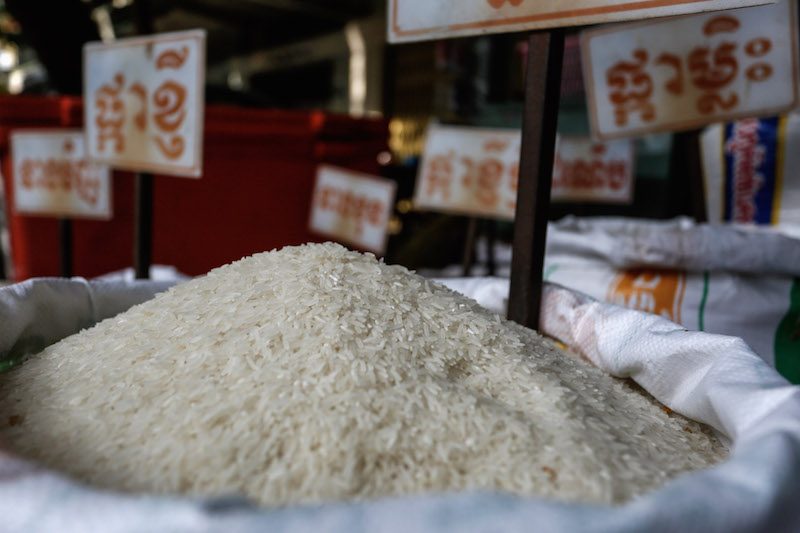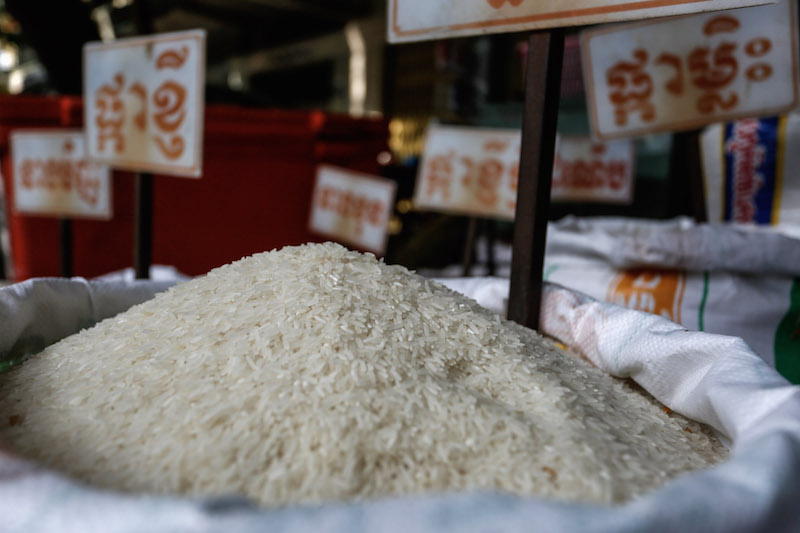Rice paddy prices have taken a new dive to less than $150 per ton ahead of the Pchum Ben holiday in an ongoing crisis that has only deepened despite government intervention earlier this month.
Sinking from $250 per ton in the middle of last month to $192 earlier this month, the government approved $27 million in subsidies to help mills purchase paddy from farmers and appealed to officials and friends of the CPP to buy paddy and dry it themselves, making room for more at mills.

Purchases of paddy took a temporary turn for the better after the monetary influx, and the Rural Development Bank, which contributed $7 million in subsidies, said on Sunday there was “no issue” in the sector.
But prices have plummeted once again.
The value of paddy hit a new low after the short reprieve, dropping to about $147 per ton this week, said Moul Sarith, secretary-general of the Cambodian Rice Federation.
Sales have again slowed as mills have largely closed for the Pchum Ben holiday over the weekend, but it should not be a problem as farmers have been told to hold off on harvesting their crops until mills reopen, Mr. Sarith said.
But some farmers have ignored these requests.
“We are still harvesting our yield because we are afraid of flooding,” said Mao Layhuon, a 56-year-old farmer from Banteay Meanchey province’s Soeu commune in Mongkol Borei district.
He said he felt backed into a corner when he sold his paddy for $147 per ton on Thursday, but worried it would go bad over the weekend if it wasn’t dried immediately.
“We sold the yield that we had harvested, but the middlemen offered us a very low price while mills are closed for the Pchum Ben ceremonies,” he said.
A government recommendation earlier this month that paddy be bought for $235 had created an expectation for higher returns, he said.
“Other workers and I are hopeless,” he said. “If the price stays low or drops further, our ultimate choice may be to sell our land or migrate.”
Soy Sarom, a 50-year-old farmer from the same commune, said middlemen had gained an upper hand even before mills had begun closing for the holiday weekend by largely refusing to pick up paddy directly from farms.
Farmers lack a means of transportation “so we can only sell to middlemen,” he said, giving these individuals “power to press the price down.”
“I don’t think the intervention was effective,” he said.
With international paddy prices continuing to fall, Hun Lak, vice president of the rice federation, said the current crisis is likely to carry into the country’s main harvest season in November unless the government intervenes again.
At that point in time, the issue would become “bigger than now,” he said.
Chan Sophal, director of the Center for Policy Studies for Cambodian Development, agreed that there is little that could be done to help farmers through this struggle, except by continuing to pour money into the sector.
“I don’t expect the government to have enough cash to help every farmer,” he said.
“It’s not looking good for the coming harvest in November and December.”
(Additional reporting by Janelle Retka)




